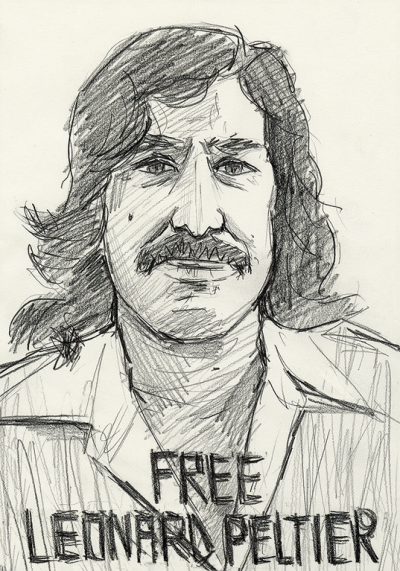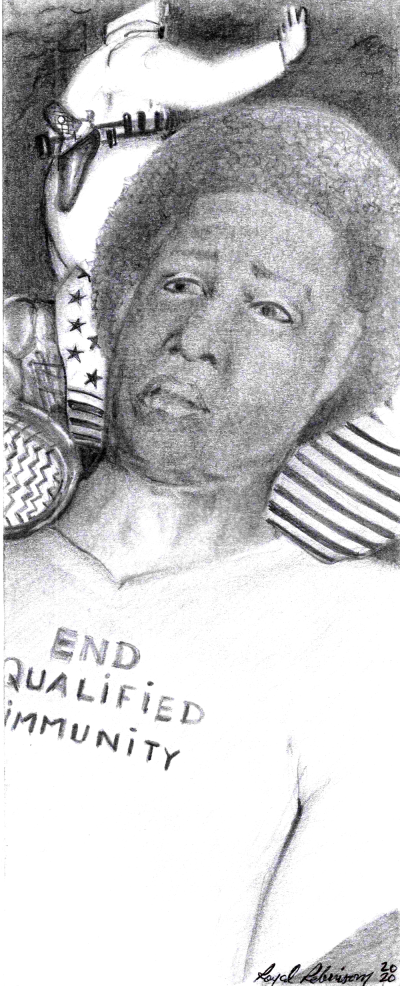
Pestilence Pilot Program: Phase 2
Now, after some 2500 being infected with COVID-19 and more than 2 dozen deaths; Phase 2 of the Pestilence Pilot Program on San Quentin’s Death Row begins pretty much the same way it kicked off back in late March/early April ( see Pestilence Pilot Program: Another Way to Thin Out the Death Row Population at San Quentin“).
The same rotating yard schedule resumes. The only speed bumps added were down days on Monday & Wednesday and a few more due to feigned concern about air quality. But health & safety doesn’t seem to be a factor in decisions affecting the yard program. Lt. Bloise even fired all Death Row workers. So there’s nobody to disinfect the yards or the tiers in any meaningful way. Those chores are left to the same disrespectful sows that refuse to comply with California Health & Safety Code 113969 Hair Restraints during in-cell food service.
None of that should surprise anyone. SQ’s Acting Warden, Ron Broomfield, routinely dismisses advice from Public Health Professionals like Dr. Matthew Willis (see San Francisco Chronicle: Web Edition for the report by Megan Cassidy called “San Quentin Officials ignored Coronavirus Guidance from top Marin County Health Officer”). Ever wonder why the U.$. leads the world in number of people infected with and dead from COVID-19? The evidence points to the rejection of the science and the withholding of facts. We see that a lot.
One example of rejecting science is Broomfield dismissing the recommendations of Dr. Willis. That’s the SQ version of Trump and Fauci as if existing in a parallel universe, right? No, it’s just one of many clumps in the same shit box. Saying one thing while doing another proves to be one creative way SQ withholds facts. One example is given when a positive COVID test was reported in East Block on 18 September 2020. For maximum dramatic effect the yard program was shut down about 45 minutes early. At some point in time the positive prisoner was moved to the Adjustment Center (The Hole) instead of Donner as was supposed to happen according to the 4 August 2020 Edition of “The Informed Patient: A San Quentin Newsletter”. It’s written and published by the “Healthcare and Leadership Team at San Quentin”. That’s not taught in just any creative writing class.
Withholding facts also helps control the narrative in the media. While it has become “common knowledge” prisoners from Chino were transferred to SQ not having been tested 2 weeks prior; nobody seems to find it important to determining how or where those transferred prisoners became infected. It’s just assumed it was brought from Chino. The actual number of staff cases at SQ prior to the transfer was successfully minimized by the 27 March 2020, Broomfield/Verdier Memo which reports: “On Thursday, March 26,2020, we learned that a member of our staff has tested positive for COVID-19”. Of course, it’s obscured that up until June all other employees entering San Quentin were only having symptom checks not COVID tests. Since few then (and even now) wear masks at all times, asymptomatic spread was imminent if not rampant.
Exactly how many employees were/are going in and out being asymptomatic and contagious was/is ignored just like Broomfield was/is ignoring recommendations of the Public Health Department.
The masks initially provided to prisoners on Death Row were not capable of protecting the wearer. They were made by PIA from cloth normally used to produce jumpsuits/prison uniforms. Prisoners on Death Row didn’t receive N95 masks until over 1000 tested positive, many ended up in outside hospitals and others were found dead in their cells. We who survived the first wave are now approaching the 100th day since the positive test results from 15 June 2020.
According to the current science, antibodies last on average around 4 months (120 days). CDCR at SQ is now in position to repeat the same experiment. What does the science say about those who expect a different result? The second wave to hit SQ will be a tsunami. The only thing different will likely be who the CDCR blames (if history teaches us anything).
The September 14 newsletter gives itself a pat on the back for a job well done and blames ignorance of science regarding masks in the beginning of the pandemic. Their creative newsletter claims “researchers didn’t think wearing masks would protect people from spreading the virus”. Did a “researcher” write that or did the writer not know real scientists (and painters) to know the difference between an N95 mask and a cloth mask? It sounds like freestyle back pedaling.
According to the newsletter’s “current statistics” there are zero new cases. There are 2147 said to be “resolved” (but no positive cases determined by 15 June 2020, test results were ever retested to confirm this). It says there are 10 “Active” in-custody cases while 186 of 288 confirmed staff cases have also been designated “resolved” and have returned to work (but without retesting first). That same newsletter admits they don’t know if such people “may infect other(s)” (page 3 of issue 12).
Perhaps it’s more scientifically accurate to explain the numbers like this: There is nobody “new” left to infect so anyone not exhibiting symptoms now is dead or considered “resolved”. Those who kept testing negative were positive and actually “resolved” before the 15 June 2020, testing took place. No retesting for prisoners who tested positive in June was facilitated asymptomatic spread.
Unfortunately, the most useful part of the SQ newsletters have been the word search puzzles. Oh yeah, it may be funny to hear somebody tell one of these disrespectful sows they should put their mask on one leg at a time since their head is up their ass, but that’s no joke! And this is no laughing matter. If this paragraph didn’t get edited out, the impact on the writer’s mental health might seem apparent.
UPDATE: On 21 November 2020, it was reported that an SQ Death Row Officer on 3rd Watch tested positive for COVID-19. This may prove to be a repeat of what followed after it was reported via Memo issued by (a) Warden Broomfield and (a) CEO Verdier that, “On Thursday March 26, 2020, we learned that a member of our staff tested positive for COVID-19.”
If you’re familiar with the popularized story attributing the cause of the outbreak at San Quentin to a transfer of inmates from Chino, be aware of the omitted facts. Those reports make no mention of the March 27, 2020 Memo quoted above. Perhaps those journalists in the mainstream don’t even know that memo exists. But their reports claim there were no COVID cases before the transfer. This means those journalists got it wrong in part.
That does not mean the CDCR is not responsible for the outbreaks then or now. In fact, it only demonstrates here what is being seen across the whole United $tates – selfish individuals who think they’re better than everyone else refuse to comply with the most basic safety protocols (wearing a face covering).









